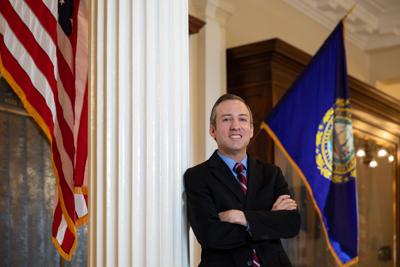AI has become a part of everyday news. An event that doesn’t get much attention and doesn’t last long in the news cycle could be a sign of something very, very big. It could be unimaginably big, with effects that are far-reaching and impossible to measure.
Several New Hampshire citizens were encouraged not to vote in the state’s presidential primary on January 23 by robocalls that seemed to be President Joseph Biden’s voice, which they received on January 21, just three weeks ago. Furthermore, the robocalls unlawfully used a phone number associated with a previous chair of the Democratic Party in New Hampshire to mask their caller ID. In a statement, New Hampshire Attorney General John M. Formella said that the robocalls originated from a Texas company called Life Corporation and a man named Walter Monk. Formella said that his office, along with federal and state partners, had begun an investigation and had reached this conclusion.

Maintaining faith in the voting process is critical. Attorney General Formella warned that voter fraud using AI-generated recordings could damage democratic electoral processes.
Is AI already out of hand?
As an effective and efficient illustration of public-private cooperation, all fifty state attorneys general’s offices and the Federal Communications Commission Enforcement Bureau are working together on this. YouMail, Nomorobo, and Industry Traceback Group are all involved.
Their claim about their values is undeniable. Maybe it’s too late to halt what seems like an unstoppable force to a lot of people. Their efficiency was commendable. However, was it fast enough? Is the sum of our responses sufficient?
There are always Good Guys versus bad guys.
Starting with the first stone tools and continuing to artificial intelligence and beyond, humans have always found both good and bad uses for new technologies. There will always be a good guy and a bad guy because of it.
Things are different with AI because of its size and power; nothing has ever been this large or as dangerous to our survival as AI, especially when it gets out of hand. For what reason is New Hampshire the best choice? What it means?
Eight months remain till the day of the election. With only around 300,000 people casting ballots in the primary, New Hampshire’s participation rate is below 0.2% of the national average for November. Just four electoral college votes, less than 0.7 percent of the total, are cast by the state. We must ask, then, why the fuss?
Was it Marketing?
Are marketing focus groups something you’ve ever been a member of? Extensive testing and feedback from select groups of customers occurs long before an item hits retail shelves. Introducing a new product is not an exercise in speculation. Too much is riding on these findings, which are the product of extensive testing.
If our interpretation is correct, then we have eight months to assess the situation, make adjustments, recruit additional villains, and finally unleash a terrifying force on a considerably greater scale. Please don’t be too pessimistic; it’s likely happening right now, with New Hampshire serving as a pilot program. The villains are gearing up for a major product release.
AI regulation
The bad guys consistently outperform the good guys in every category, including speed, agility, and quickness. The good guys are occupied with following democratic norms, free market principles, and transparency, while the bad guys aren’t. To top it all off, which players can travel faster, anywhere they desire? Their ability to “stop on a dime and give you nine cents change” reminded us of the ancient proverb.
Is it possible to regulate AI?
The thought of trying to control AI is often written off as foolish and unrealistic. Perhaps, at least temporarily. However, the major concern we have is the consequences of doing nothing.




